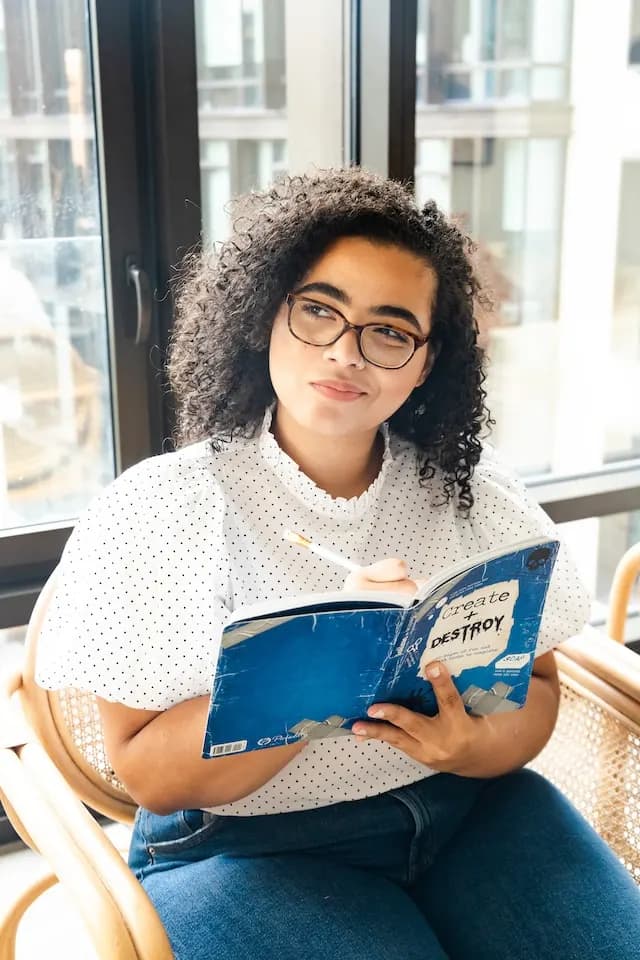Top 25 J1 Visa Interview Questions for Research Scholars in 2025

So, you’ve applied for a J1 visa to conduct research in the U.S., and now it’s time for the interview. Feeling nervous? Don’t worry—you’re not alone! This blog is here to help you prepare for your J1 visa interview, specifically for those applying for the J1 Visa for Research Scholars Program. I’ll walk you through 25 common J1 visa interview questions for research scholars, provide sample answers, and explain why these answers work along with useful tips.
Ready to dive in? Let’s get started!
1. Why have you chosen the U.S. for your research?
Sample Answer: I chose the U.S. because it offers unparalleled access to advanced research facilities and a collaborative environment. My host institution is recognized for its contributions to my field, and I believe working here will elevate my research to new heights.
Reasoning: This answer demonstrates that you’ve done your homework and understand the value of conducting research in the U.S. It also shows that your decision is based on logical, research-driven reasons rather than just wanting to visit the country.
Tip: Don’t say you chose the U.S. because of the beaches—unless your research is in marine biology!
2. Can you tell me more about the research project you’ll be working on?
Sample Answer: I will be working on a project that focuses on the genetic modification of crops to increase their resistance to climate change. The goal is to develop sustainable agricultural practices that can be used globally to combat food insecurity.
Reasoning: Your answer should reflect a solid understanding of your research and its significance. This shows the interviewer that you’re serious about your work and are genuinely passionate about the subject.
Tip: Be as clear as possible—no one likes feeling like they’re stuck in a science lecture!
3. Why is this research important?
Sample Answer: This research is crucial because it addresses global challenges like food insecurity and climate change. By finding sustainable solutions, we can help improve agricultural productivity worldwide, which is vital for future generations.
Reasoning: This answer showcases that you know the broader impact of your work. It’s important to show how your research contributes to society, not just academia.
Tip: Don’t be afraid to geek out a little, but remember—no need to dive into your 50-page thesis!
4. How did you connect with your host institution?
Sample Answer: I reached out to Professor Smith after reading his papers on agricultural sustainability. We exchanged several emails, and he invited me to apply for the J1 Visa program to conduct research at his lab.
Reasoning: This answer shows initiative. You took the time to seek out a mentor and actively engage with a research group that aligns with your interests.
Tip: Shooting a random email to a professor you admire could be a game-changer—don’t be shy!
5. What are your long-term goals after completing your research?
Sample Answer: After completing my research, I plan to return to my home country to apply the findings to local agricultural practices. My ultimate goal is to collaborate with government bodies to create sustainable farming policies.
Reasoning: This answer emphasizes your intent to return home after the program, which is a crucial part of the J1 visa requirements. You’re showing that you have a clear plan for how your research will benefit others.
Tip: Don’t say, “I’ll just figure it out when I get back”—you need a plan!
6. How will this research benefit your home country?
Sample Answer: My home country faces significant challenges in agricultural productivity due to climate change. By implementing the techniques I learn, I can help local farmers adapt to changing environmental conditions and improve food security.
Reasoning: The U.S. government wants to know that your research will have a meaningful impact, especially in your home country. This answer highlights the practical applications of your work.
Tip: Focus on how your research will save the world—or at least a part of it!
7. Do you plan to return to your home country after the program?
Sample Answer: Yes, I fully intend to return home to continue my research and contribute to improving agricultural practices. I believe the knowledge I gain in the U.S. will be invaluable for the development of sustainable farming in my country.
Reasoning: It’s important to emphasize your intent to return home, as the J1 visa is for temporary research programs. This answer reassures the officer that you’re not planning to overstay.
Tip: Make it clear you’re not planning to stay for the pizza (even though it’s tempting).
8. How will you fund your stay in the U.S.?
Sample Answer: My host institution is providing a stipend to cover my living expenses, and I’ve also saved some personal funds to ensure I can support myself throughout my stay.
Reasoning: This answer shows that you’ve thought about the financial aspect of your trip and won’t be a burden on the U.S. economy.
Tip: You don’t need to be a millionaire—just make sure you won’t be couch surfing!
9. Why is the U.S. a better option for this research compared to other countries?
Sample Answer: The U.S. has cutting-edge research facilities and a strong network of academics working on similar projects. Collaboration with these experts will allow me to produce higher-quality research and gain unique insights that aren’t as readily available elsewhere.
Reasoning: This answer provides a logical reason for choosing the U.S. over other countries, showing that you’ve carefully considered your options.
Tip: Avoid making it sound like you’re choosing the U.S. just for fun—this is about serious research!
10. What will your daily responsibilities be during the research program?
Sample Answer: I’ll be conducting experiments, analyzing data, and collaborating with fellow researchers to write papers. I’ll also be presenting my findings at departmental seminars to receive feedback and improve the quality of my research.
Reasoning: This answer shows that you have a clear understanding of your role and are prepared to fulfill your responsibilities.
Tip: Don’t just say, “I’ll be doing research”—specifics make you sound more prepared.
11. How do you plan to overcome the challenges you might face during your research?
Sample Answer: I anticipate some challenges, particularly with adapting to new research methods, but I’m confident I can overcome them by staying focused and seeking advice from my mentors and peers. I believe a proactive approach will help me stay on track.
Reasoning: This answer shows resilience and a proactive attitude, which are both key qualities that research programs look for in scholars.
Tip: Don’t say, “I don’t know what I’ll do”—research is all about facing and solving challenges!
12. What are your expectations from the research program?
Sample Answer: I expect to gain hands-on experience in cutting-edge techniques, collaborate with top researchers in my field, and contribute to meaningful discoveries that can benefit both my home country and the global community.
Reasoning: This answer highlights your enthusiasm for learning and making an impact, which reflects positively on your application.
Tip: Don’t expect a walk in the park—research can be tough, but rewarding!
13. How will this research program contribute to your professional development?
Sample Answer: This program will help me develop key research skills, such as data analysis and scientific writing. It will also provide me with networking opportunities and the chance to work on interdisciplinary projects, which are essential for my future career in academia.
Reasoning: Your answer should emphasize how the program aligns with your long-term professional goals. This shows that you’ve thought about how the experience will help you grow.
Tip: Make sure you don’t come across as someone who’s just doing this for a line on your CV.
14. What previous experience do you have in research?
Sample Answer: I’ve worked on multiple research projects during my undergraduate and master’s studies, including a project on climate-resistant crops. I’ve also co-authored two research papers that were published in national journals.
Reasoning: Highlighting your prior experience shows that you’re prepared for the rigors of research in the U.S. and have the necessary background to succeed.
Tip: Your past research experience is your golden ticket—don’t leave it out!
15. How do you plan to share your research findings?
Sample Answer: I plan to present my findings at international conferences and publish them in peer-reviewed journals. I’m also committed to sharing my research with local institutions in my home country to implement sustainable agricultural practices.
Reasoning: This answer shows that you’re thinking ahead about how your research will have an impact both locally and globally.
Tip: Don’t hide your findings—share them with the world (or at least your research community)!
16. What impact do you hope your research will have on your field?
Sample Answer: I hope my research will contribute to developing sustainable agricultural techniques that can help address food security issues caused by climate change. I also aim to inspire future research in this area.
Reasoning: This answer demonstrates that you have big-picture thinking and care about making a meaningful contribution to your field.
Tip: Aim high! Who knows—your research might change the world someday.
17. Why do you think you’re a good fit for this research program?
Sample Answer: I have a strong background in agricultural science, and my previous research on crop resilience aligns perfectly with the objectives of this program. I’m also highly motivated to contribute to the field and learn from the experts at my host institution.
Reasoning: This answer shows that you’ve reflected on your skills and qualifications, making you a great fit for the program.
Tip: It’s your time to shine—show them why you’re the perfect match for this program!
18. How will you adapt to a new environment in the U.S.?
Sample Answer: I’ve lived in different regions in my home country, and I’m used to adapting to new cultures and environments. I’m excited to learn about U.S. culture and work with people from diverse backgrounds.
Reasoning: This answer shows flexibility and adaptability, qualities that are crucial for someone moving to a new country for research.
Tip: A little cultural curiosity goes a long way—embrace it!
19. What will you do if your research doesn’t go as planned?
Sample Answer: If my research doesn’t go as planned, I will collaborate with my team and advisors to identify alternative methods. Research is often unpredictable, so I’m prepared to adapt and stay focused on achieving the project’s goals.
Reasoning: This answer highlights your problem-solving skills and ability to handle setbacks, both of which are critical in research.
Tip: Research is a rollercoaster—so buckle up and keep going, no matter what!
20. How will you handle the pressure of a demanding research program?
Sample Answer: I handle pressure by staying organized and breaking large tasks into smaller, manageable steps. I also believe in maintaining a good work-life balance to stay focused and productive.
Reasoning: This shows that you’re realistic about the challenges and have developed strategies to manage stress and stay on track.
Tip: Remember to breathe and don’t forget to take breaks—you’re not a robot!
21. What challenges do you expect to face during your research in the U.S.?
Sample Answer: I expect to face challenges in adapting to new research methods and perhaps some cultural differences. However, I’m confident that my adaptability and willingness to learn will help me overcome these challenges.
Reasoning: This shows that you’re realistic about potential obstacles but remain optimistic and proactive in your approach.
Tip: Challenges make you stronger—bring them on!
22. Can you explain your visa sponsorship and financial arrangements?
Sample Answer: My research program is fully funded by my host institution, which will cover my living expenses and research-related costs. I also have some personal savings to ensure I have sufficient funds for my stay.
Reasoning: This answer shows that you’re financially prepared and have the necessary support from your institution, which reassures the visa officer.
Tip: Being financially sorted is key—don’t rely on winning the lottery!
23. What will you miss the most about your home country while conducting research in the U.S.?
Sample Answer: I’ll definitely miss my family and home-cooked meals. However, I’m looking forward to this new experience and learning more about American culture.
Reasoning: This answer adds a personal touch, showing that you’re human but also excited about the opportunity ahead.
Tip: It’s okay to miss home—just don’t let it stop you from making the most of your experience.
24. What steps have you taken to prepare for living in the U.S.?
Sample Answer: I’ve already researched the local area near my host institution, found accommodation, and familiarized myself with U.S. customs and regulations. I’ve also connected with fellow researchers at the institution to help ease the transition.
Reasoning: This answer shows that you’re proactive and well-prepared for your stay, which is reassuring for the interviewer.
Tip: Preparation is key—Google is your best friend!
25. What excites you most about this research opportunity?
Sample Answer: I’m most excited about collaborating with world-class researchers and gaining access to advanced technologies that will help push the boundaries of my research. The opportunity to contribute to real-world solutions is truly thrilling.
Reasoning: This answer shows enthusiasm and passion for the opportunity, which will leave a positive impression on the visa officer.
Tip: Get excited! Enthusiasm is contagious—even in an interview.
Final Thoughts
Interviews can be difficult, but preparation is key. These 25 J1 visa interview questions are tailored specifically for research scholars, so by practicing these, you’ll be more than ready to ace your interview. Always be genuine and clear in your answers. Remember, the visa officer wants to see that you have a clear purpose, are prepared for the program, and intend to return to your home country after completing your research.
Good luck, and don’t forget to be confident—after all, you’re about to start an exciting research journey in the U.S.!




